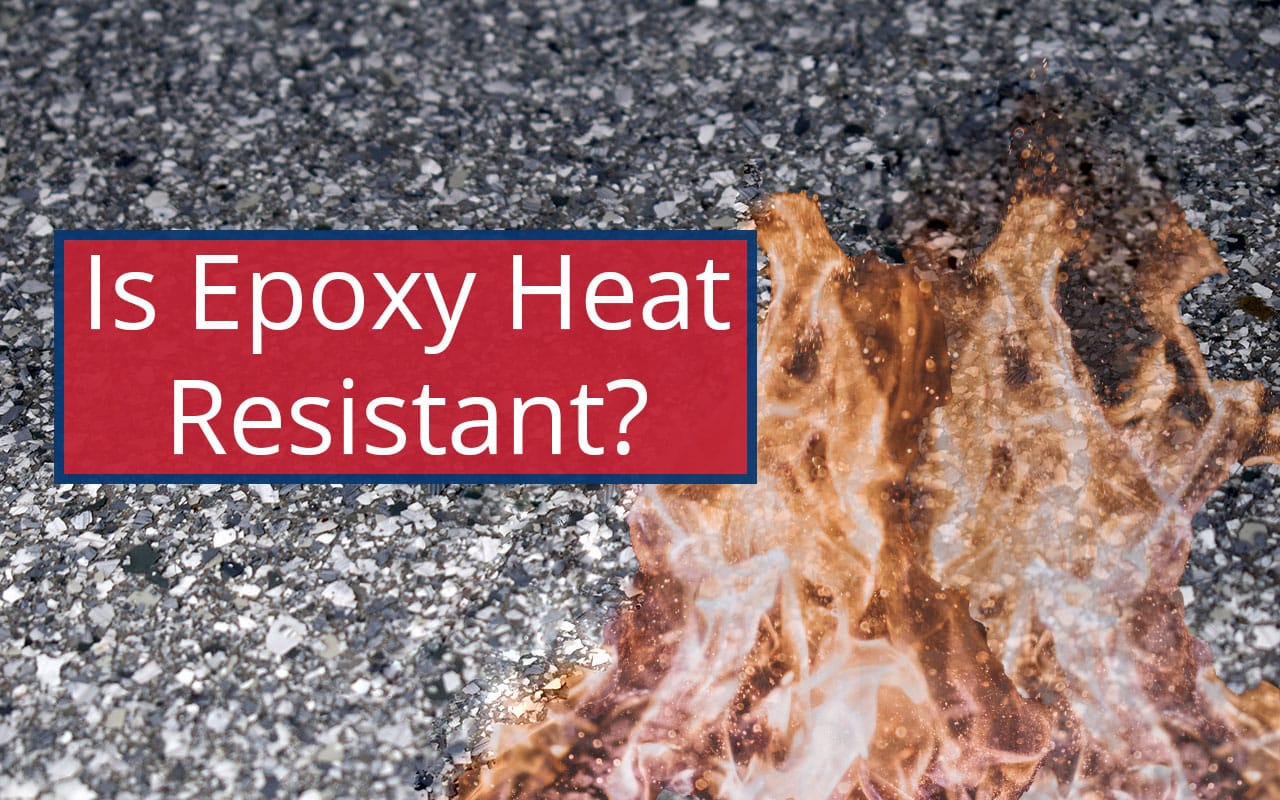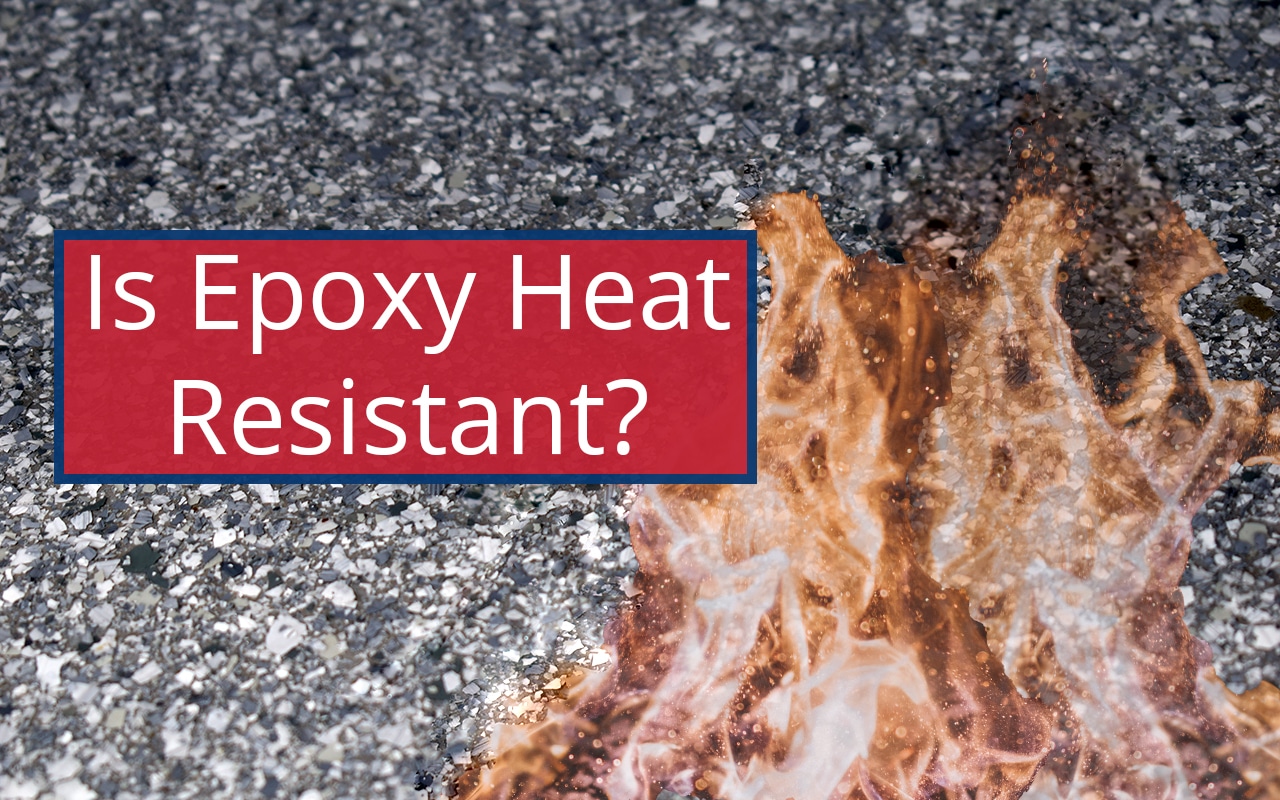

Epoxy is a popular flooring solution for commercial and residential spaces alike. With its impressive durability and stylish finish, this high-quality flooring is renowned for good reason. But what conditions can it really withstand? For some, high temperatures might be a concern. You might wonder, “is epoxy flooring really heat resistant?”
Let’s dive in and find out.
To put it simply, yes. Epoxy is known for its ability to withstand high heat. But there are certain thresholds for different types of epoxy systems. Basic epoxy and resin used for craft products are fairly heat resistant but will warp when exposed to high temperatures. But not to worry! If you’re in need of more resilient flooring material, there are high-temperature epoxies available for floor installation as well.
High-temperature epoxy is specifically formulated to withstand higher temperatures than average epoxy resin. It’s not only an option for flooring but it’s also used for crafting, kitchen countertops, mechanical repair, and more. With its superior durability, it can be a useful tool in an array of applications.
So how heat resistant is epoxy, really? Again, this will depend on the type of epoxy you’re talking about. Normal epoxy can be relatively resilient in the face of heat. The most basic resins can stand up against temperatures from 150° F to 300° F for short periods of time. Over time, the epoxy will begin to distort when exposed to these temperatures.
Heat-resistant epoxy is a lot more durable than its basic counterparts. It can typically withstand heat up to 600° F. The catch is, most heat-resistant epoxies need to be cured at temperatures at or beyond the temperature it will need to endure. If temperatures exceed these maximum service temperatures, the material could start to distort. This is a concern that really only concerns those using epoxy for mechanical or electrical purposes.
There are several options for high-temperature epoxy solutions. Some will be best for small projects, some are ideal for flooring. Here are a few options used across different mediums:
This option is a one-part epoxy solution. Its main application is for bonding, sealing, coating, and encapsulating. It can withstand temperatures up to 600° F. EP17HT-LO requires heat curing. It usually needs to be cured for 2 - 12 hours at 350° F. It’s often used for industrial applications.
Master Bond EP45HTAN is a two-part epoxy solution that is thermally conductive and electrically insulative. It’s used for bonding and sealing. This type of epoxy typically takes 2 - 3 hours to cure at about 300° F. This high-heat epoxy is used for industrial purposes in the aerospace field.
Used for bonding, coating, sealing, and potting, Master Bond MasterSil 972TC-LO is another example of a two-part epoxy solution. This one is silicone-based and can cure with heat or at room temperature. It’s used primarily in aerospace and electronic technologies.
Stone Coat Epoxy is a popular brand of heat-resistant epoxy. It gets its name from the beautiful stone-like pattern it produces when poured. Stone coat epoxy can be used for flooring, countertops, tables, and more. It can withstand heat up to 500° F and cures at 65-80° F. The cure time is about 6 - 8 hours.
Epoxy Colorado is skilled in applying epoxy flooring. We work with the client to assess their needs –including if they need a heat-resistant solution– to help them achieve the best flooring possible. If you’re ready to learn more about our process, reach out today! We’ll be happy to walk you through your options and calculate a free estimate for you.
